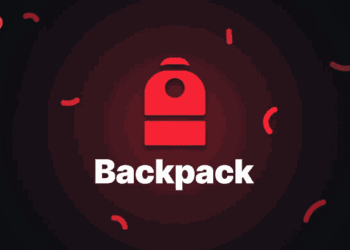Last updated on October 18th, 2023 at 11:25 am
With money pouring into the NFT industry, there’s a rise in malicious actors looking to profit at the expense of regular NFT users. In 2021, the NFT market boomed, reaching $23 billion in trading volume, according to dAppradar. However, this growth also led to an increase in cybercrime, with many instances of NFT fraud, art scams, and game scams making headlines.
A classic example is the “Ballers Ape” case, a project that promised to match the success of projects like the Bored Ape Yacht Club. Unfortunately, this promise remains unfulfilled to date; instead, investors collectively lost over $2 million. The Fake Banksy NFT project is also another example. Investors lost approximately $336,000 to the sham project.
Sadly, these scams and financial losses have become a recurring theme in the NFT space. In recent months, they have even grown in complexity and severity. As such, users must exercise caution.
There are various types of NFT scams, and it is important to learn how to identify and avoid them. This article will discuss the common NFT scams and provide guidance on how to protect yourself from them.
Common Fraudulent Schemes in the NFT space
Counterfeit and Plagiarized NFT Projects
Counterfeit and plagiarized NFT projects are the most prevalent types of scams in the NFT space. There is a high likelihood that you could be purchasing a stolen copy of an artist’s real-world work in most NFT marketplaces. OpenSea found that more than 80% of NFTs made with its tool were fake.
Scammers employ a simple yet deceptive process: they duplicate digital content, such as artwork or collectibles, and present it to buyers as genuine NFTs. They often target trending creations to exploit their popularity.
As expected, these copying, sharing, and selling are done without the authorization of the original creators or proper credit. This is a source of frustration among creators because it essentially impacts how much value they can get for their hard work.
For example, Mike Winkelmann, also known as Beeple, gained widespread recognition for his artwork “Everyday: The First 5000 Days,” which sold as an NFT at a prestigious Christie’s auction for an astounding $69 million, setting an NFT record.
However, hackers managed to breach Beeple’s Twitter account, deceiving his followers into losing $438,000 in cryptocurrency and NFTs. They posed as Beeple and falsely announced a collaboration with Louis Vuitton for digital art, ultimately tricking many buyers.
These actions not only violate copyright laws but also lead to serious legal consequences. Buyers, often unaware of the NFTs’ illegitimate origins, suffer substantial losses when the fake nature of their NFTs is revealed.
Phishing Scams and Fake Marketplaces
Most NFT phishing scams use fake websites and pop-ups to trick people into revealing their wallet keys or security phrases. With this information, scammers access their victims’ wallets and steal their cryptocurrency and NFTs.
In 2022, OpenSea was planning a vital website upgrade. Attackers took advantage of this and sent phishing messages to OpenSea users. Meticulously crafted to appear genuine, these messages pressured users into swift actions, such as divulging sensitive information or clicking on seemingly official links.
Tragically, a substantial number of OpenSea users failed to detect that they were dealing with scammers and fell victim to the phishing scheme. This incident culminated in attackers getting away with over $2 million worth of cryptocurrencies.
Another typical phishing tactic, customer support scams, happens frequently in the NFT space. The modus operandi is the same: Scammers target NFT holders and get their contact information on platforms like Discord, Telegram, or Reddit. Then, they trick them with fake NFT schemes.
These scammers create fake profiles on websites that seem genuine and pretend to be tech support from trustworthy marketplaces to trick users with tempting offers.
Sometimes, these fraudsters pretend to help solve problems and slyly get sensitive information from unaware users. Once they get this information, the victims’ NFT assets are as good as gone.
Pump and Dump Schemes
Pump-and-dump schemes often involve duping individuals through deceptive advertising or market manipulation to inflate the price of an NFT.
Scammers try to make an NFT seem more valuable than it really is by spreading false information about its rarity, history, or future value. This lures unsuspecting investors into thinking the NFT is a valuable purchase. However, the real aim of these scammers is to capitalize on the artificially inflated price by promptly liquidating their tokens or NFTs.
Once they attract a sufficient number of buyers and elevate the price, they swiftly sell their assets, reaping substantial profits.
The aftermath of this scheme typically sees the NFT’s price plummet shortly after the scammer’s sell-off. This leaves other investors holding NFTs without their anticipated value, rendering their assets virtually worthless—meanwhile, the scammer makes off with their ill-gotten gains.
Rug Pulls in NFT Projects
This tactic shares similarities with pump-and-dump schemes, but it involves more elaborate processes and is difficult to detect.
Scammers create actual NFT collections or projects and lure investors with promises of inherent value. They use marketing to generate excitement and recruit participants who later become victims. They even go through typical processes like legitimate projects.
However, once the collection/project developers raise funds, usually through ICOs or presales, they disappear and cut all ties with their investors. This abrupt exit mirrors the modus operandi of a “pump and dump” strategy but within the NFT marketplace.
Investors end up with worthless NFTs, losing their money to these dishonest individuals. Many victims are often unable to recover their funds like they can do in traditional systems because blockchain transactions are decentralized and anonymous. Thus, it is difficult to find the culprits or take legal action.
For example, Evolved Apes was a 10,000-piece NFT project that promised investors a game where characters could battle and earn rewards. However, the developers vanished after the NFT sale, deleted social media accounts, and ‘Evil Ape’ (the anonymous developer) made off with about $2.7 million, including money meant for project expenses like marketing and game development.
The game winners didn’t receive NFT prizes as promised, and the artists didn’t get paid.
Subsequently, the NFT prices for the game plummeted significantly below their initial value, leading to a slowdown in trading activity. The prospect of investors ever recovering their funds remains uncertain, but based on past incidents, it’s unlikely.
Bidding Scams
Bidding scams occur when NFT creators try to sell their NFTs.
When creators list their NFT for sale, bidders or buyers manipulate the prices, by opting to bid in less valuable cryptocurrencies than the preferred currency.
Imagine you put your NFT up for sale at 10 SOL, currently valued at $200. A scammer offers you 100,000 Shiba Inu tokens, currently worth only $0.7.
The catch lies in the fact that you may not realize that this offer significantly undervalues your initial listing price, which means you could end up losing money if you agree to sell.
How to Avoid Falling Victim of NFT Scams
Participating in the NFT space can be rewarding, but it requires extra caution to steer clear of scams. There will always be warning signs that might hint at potential scams. You have to be on the lookout for these signs so you can safeguard your investments and digital assets.
Let’s look at some of the basic things you can do to avoid falling victim to NFT scams:
- Review Project Documentation: Carefully review the project’s documents. If the whitepaper or project description is poorly written, it may suggest a lack of professionalism or attention to detail.
- Pay Attention to Details: Legitimate NFT projects typically provide clear and detailed information about their goals, team members, and plans. If you can’t find this information or it’s unclear, be cautious in your approach.
- Stay Away from Pressure Sales: Scammers might pressure you with limited-time offers or exclusive deals to make quick decisions. Avoid rushing and resist succumbing to the fear of missing out; take your time to make informed choices.
- Be Wary of Too-Good Offers: Be careful if an offer seems extremely generous or promises guaranteed profits. Real NFT investments involve risks and uncertainties.
In Conclusion
- NFT scams persist as an ongoing concern, but you can shield yourself from them. Begin by educating yourself about various scams and gaining a deep understanding of the market before making any investments in the NFT space.
- While numerous developments are underway to devise innovative methods for combating these scams, the ultimate responsibility for safeguarding your assets lies with you.
- In the unfortunate event that you fall victim to a scam, do not hesitate to report it. Taking this step not only aids in recovering your losses but also serves to protect others from succumbing to the same scam.
Disclaimer: This article is intended solely for informational purposes and should not be considered trading or investment advice. Nothing herein should be construed as financial, legal, or tax advice. Trading or investing in cryptocurrencies carries a considerable risk of financial loss. Always conduct due diligence.
If you would like to read more articles (news reports, market analyses) like this, visit DeFi Planet and follow us on Twitter, LinkedIn, Facebook, Instagram, and CoinMarketCap Community.
“Take control of your crypto portfolio with MARKETS PRO, DeFi Planet’s suite of analytics tools.”























